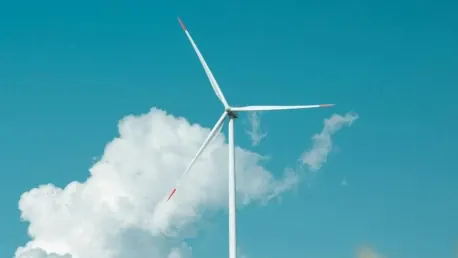The Biden administration has quickly funneled billions into green energy and climate initiatives, driven by the looming threat of a potential Republican takeover of the White House. Fearful that a new administration might rescind allocated funds, the current government is racing against time to solidify its environmental legacy while it still can. This race to “spend it or lose it” has resulted in significant investments across a variety of projects, from wind energy and rural electric cooperatives to a new marine sanctuary and efforts to cut greenhouse gas emissions in tribal communities. While the administration’s intent is to make meaningful progress in the fight against climate change, critics argue that this unchecked spending will have severe consequences for the national deficit and could exacerbate inflation.
Economic Concerns and Criticisms
Economic commentators and critics are scrutinizing the administration’s spending spree, warning that such fiscal behavior could lead to severe repercussions. Fox Business Anchor Stuart Varney has been particularly vocal, emphasizing that the national deficit has ballooned by $1.5 trillion in just the past ten months. Varney argues that this level of government expenditure is unsustainable and would typically call for a contraction of the deficit, especially during a time of economic growth and low unemployment. Instead, the current administration’s aggressive spending could perpetuate a financial crisis, magnifying existing economic vulnerabilities.
Varney’s points resonate with a broader economic critique: an era of economic growth should ideally be accompanied by fiscal conservatism, safeguarding future stability. Instead, the current strategy of heavy expenditure during favorable economic conditions is seen as reckless by some economists. They caution that escalating national debt and persistent inflation could result from current policies, placing the country on a precarious financial footing. The Biden administration’s commitment to ambitious climate goals and social programs may appeal to its voter base, but it stands accused of sidelining fiscal responsibility in its quest to usher in a green revolution.
Vice President Harris’s Stance and Criticisms
Vice President Kamala Harris has entered the fray with her own set of economic solutions aimed at combating high prices and inflation. Harris has pledged to address what she terms “corporate greed” and “price gouging” as primary factors driving up costs for American consumers. However, critics like Varney suggest that targeting corporate behavior is not an effective solution to the broader economic issues at hand. Instead, they argue that such an approach may deflect attention from the more pressing matters of runaway government spending and an inflated deficit.
Harris has also proposed significant subsidies for affordable healthcare and childcare, alongside the administration’s green energy objectives. These initiatives could further strain the federal budget, leading to additional financial burdens. Critics believe that while these policies might provide short-term relief or benefits, they could ultimately contribute to long-term economic instability. Harris’s strategies, though well-intentioned, face the challenge of balancing immediate social needs with sustainable fiscal practices. The administration’s dual focus on climate and social justice appears to be locked in a tug-of-war with economic pragmatism.
The Divergence Between Environmental Goals and Economic Pragmatism
Vice President Kamala Harris has stepped forward with her own economic plans to tackle high prices and inflation. She aims to address what she calls “corporate greed” and “price gouging,” which she believes are major contributors to rising costs for Americans. However, critics, including Varney, argue that focusing on corporate behavior won’t solve the broader economic problems. They contend that this approach might divert attention from more critical issues like excessive government spending and a ballooning deficit.
In addition, Harris has advocated for substantial subsidies to make healthcare and childcare more affordable. These proposals align with the administration’s green energy goals but could further strain the federal budget and add to financial burdens. Critics argue that while these policies might offer short-term relief, they could lead to long-term economic instability. Harris’s plans, despite being well-meaning, face the challenge of balancing immediate social needs with sustainable fiscal practices. The administration’s dual focus on climate change and social justice seems to be in a tug-of-war with practical economic concerns.









